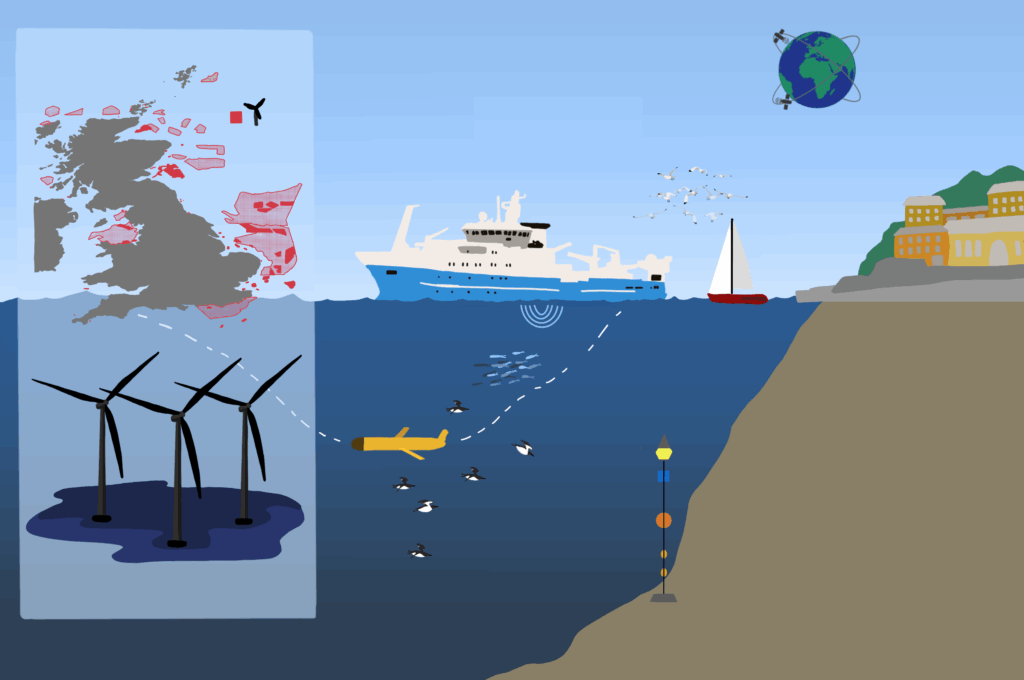Project Description
Supervisors
Dr Neda Trifonova, School of Environmental Sciences, University of East Anglia from January 2026
Professor Carol Robinson, School of Environmental Sciences
Dr David Righton, Centre for Environment, Fisheries and Aquaculture Science (Cefas)
Dr Oliver Hogg, Centre for Environment, Fisheries and Aquaculture Science (Cefas)
Scientific Background
The UK marine environment is a complex, high-demand space. It provides vital services, including food provision through fisheries and aquaculture, and energy security via offshore wind generation. Balancing these uses while preserving biodiversity and protecting marine ecosystem health is increasingly challenging. As human pressures and climate change accelerate, we urgently need smart, evidence-based tools to plan, manage, and protect our marine ecosystems.
At the forefront of this innovation is machine learning. Its ability to process complex, multidimensional datasets is transforming marine ecology and redefining how we detect and respond to ecosystem change.
This PhD will place you at the forefront of this emerging field. You will address a key challenge: assessing what makes a reliable measurable indicator of change in marine ecosystems (e.g., shift in species populations) and interpreting what these indicators reveal about ecosystem health.

(Image produced by Ella Benninghaus, PhD candidate at the University of Aberdeen)
Research Methodology
You will develop and apply cutting-edge machine-learning techniques to identify the most informative indicators of ecosystem change and use them to build dynamic Bayesian network (DBN) ecosystem models. The project’s key objectives are to: 1) Identify critical indicators relating to ecosystem health and resilience; 2) Incorporate indicators into DBN models to simulate how ecosystems respond to future climate and human use scenarios; 3) Investigate the merits and drawbacks of DBN models in different geographic locations and over varying timescales; 4) Translate DBN model outputs into policy-relevant insights supporting the design of effective Marine Protected Areas (MPAs) and informed Marine Spatial Planning.
Training
Based at the University of East Anglia, you will gain expertise in marine ecosystem modelling using both field-based and modelled physical and biological data. Collaboration with Centre for the Environment, Fisheries and Aquaculture Science will provide exposure to how science informs UK policy on marine biodiversity and MPAs design. You will gain sea-going field experience and be trained in a range of state-of-the-art instruments aboard the RV CEFAS Endeavour.
Person Specification
We seek an enthusiastic individual who is interested in marine ecology, computing, with some prior experience in programming and data handling, eager to communicate findings to wider stakeholders and help shape the UK’s marine conservation strategies and the sustainable use of the marine environment.
Acceptable first degree subjects: Suitable for someone passionate about environmental research and sustainable use of the marine environment with an aptitude for numerical descriptions of ecological processes and qualification(s) in environmental, marine or mathematical sciences (or similar)
Project code: TRIFONOVA_UEA_ARIES26
